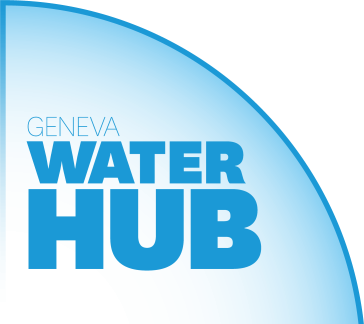
Transboundary Basin Organizations for Peace
Since 2019, the Geneva Water Hub, in collaboration with the Secretariat of the UNECE Water Convention and IGRAC, has facilitated a dialogue on the Senegal-Mauritanian Aquifer Basin (SMAB). This groundwater reserve, shared by The Gambia, Guinea-Bissau, Mauritania, and Senegal, is vital for the region, sustaining 80% of the population and serving as a strategic resource for climate change adaptation due to its greater resilience compared to surface water. However, the SMAB is under increasing pressure from population growth, expanding domestic and productive uses, pollution, and salinization, making its sustainable management essential for regional stability and water security.
The dialogue, supported by the Geneva Water Hub, is spearheaded by state representatives through a Regional Working Group focused on transboundary cooperation for the SMAB. This process involves the Senegal River Basin Organization (OMVS) and the Gambia River Basin Organization (OMVG), two transboundary basin organizations with overlapping jurisdictions. The cooperative framework for the SMAB aims to leverage the active involvement of the OMVG and the OMVS to help states and national services coordinate on transboundary and intersectoral issues, and to promote the conjunctive use of groundwater and surface water.
Initiated with a Ministerial Mandate in 2020, the Regional Working Group facilitated the 2021 Ministerial Declaration on the SMAB, through which states committed to negotiating an institutional arrangement. The group has also developed a regional program that has attracted key international technical and financial partners to further support transboundary cooperation efforts.
Related content:
- Video “A common vision: Cooperation in the Senegalo-Mauritanian Aquifer Basin (English subtitles)”
- Round Table "Transboundary collaboration on the Senegalese-Mauritanian Aquifer", Wednesday 6 February 2019
- UN News “Afrique de l’Ouest : quatre pays coopèrent dans la gestion du bassin aquifère sénégalo-mauritanien (CEE/ONU)”
- The Water Diplomat (1 Nov. 2024): “Ministers and Development Partners advance Cooperation on the Senegalo-Mauritanian Aquifer Basin”
The Senegal River Basin Organization (OMVS), which brings together Guinea, Mali, Mauritania, and Senegal to jointly manage the Senegal River and its drainage basin, is widely recognized as a global model for regional cooperation in water management. The Geneva Water Hub has a longstanding partnership with the OMVS, supporting its development initiatives and promoting its pioneering approach to interstate transboundary cooperation, which was honored with the 2022 King Hassan II Great World Water Prize. Aware of the peace and security challenges facing the basin, the OMVS is committed to accelerating local socioeconomic development to reinforce peace in the region.
In this context, the Geneva Water Hub, in collaboration with key partners, is supporting the reinforcement of actors to engage on multi-level water cooperation to strengthen peace in the basin. It launched the "Voices of the River, Pathway to Peace" initiative. A strategic and creative dialogue, organized in the lead-up to the 9th World Water Forum, that fostered discussions on water-related challenges between local populations, OMVS leaders, and water management experts. One of the key outcomes has been the development of the OMVS Digital Blue Platform, designed to generate employment opportunities and support local entrepreneurship. The platform will provide vital information on regulatory frameworks, mechanisms for supporting entrepreneurship, and readily fundable local projects within the Senegal River Basin.
Related content:
- The "Voices of the River, Way of Peace" initiative
- Video "Voix du fleuve, voie de la paix" 2024 World Water Day
